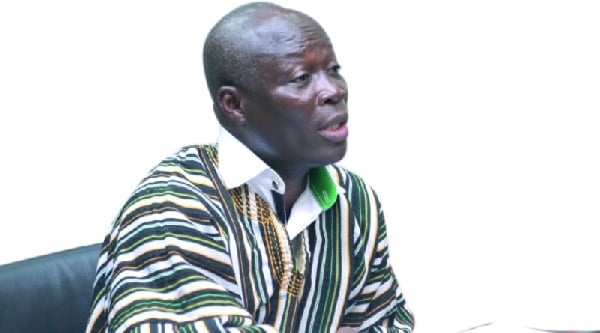The unfolding drama surrounding the attempted arrest of Reverend John Ntim Fordjour, Member of Parliament for Assin South and Ranking Member on the Defence and Interior Committee, has shed light on the delicate balance between parliamentary privilege and the execution of law enforcement duties. The incident, sparked by Fordjour’s allegations of suspicious activities at Kotoka International Airport, highlights the potential for political tensions to escalate when investigations intersect with the sphere of parliamentary immunity.
The sequence of events began with Rev. Fordjour raising concerns about two flights landing at Kotoka International Airport, insinuating potential involvement in drug trafficking and money laundering. These allegations prompted a response from the National Intelligence Bureau (NIB), who subsequently initiated an operation to detain the MP at his residence. This action, however, was intercepted by the intervention of Minority Leader Alexander Afenyo-Markin, who negotiated a temporary reprieve for his colleague.
Nii Lantey Vanderpuye, National Coordinator for the District Road Improvement Programme (DRIP), confirmed that Afenyo-Markin had appealed to National Security, requesting permission to personally present Rev. Fordjour at their offices. This request, granted by the authorities, resulted in the suspension of the NIB’s operation. Vanderpuye emphasized that while parliamentary privilege exists, it doesn’t provide blanket immunity from arrest, and the proper procedure for summoning an MP involves communication through the Speaker of Parliament. He characterized the Minority’s actions at Fordjour’s residence as theatrical and unnecessary, suggesting a pre-existing agreement for the voluntary surrender of individuals sought by law enforcement.
The incident underscores the complex interplay between parliamentary privilege, designed to protect legislators from undue interference in their duties, and the imperative for law enforcement agencies to investigate potential criminal activity. While parliamentary privilege provides a measure of protection, it’s not absolute and does not shield MPs from legitimate investigations. The established protocol for involving MPs in such matters typically involves communication through the Speaker, ensuring a balance between respecting parliamentary processes and upholding the rule of law.
Vanderpuye’s account suggests a pre-arranged understanding between the Minority leadership and government officials regarding the handling of such situations. This agreement, seemingly predicated on voluntary cooperation, aimed to avoid potentially confrontational scenarios like the one that unfolded at Fordjour’s residence. The Minority Leader’s intervention, therefore, can be interpreted as upholding this prior agreement, ensuring that Rev. Fordjour would cooperate with the investigation without the need for a forced apprehension.
This incident serves as a reminder of the delicate balance that must be maintained in a democratic society between respecting the privileges afforded to elected representatives and ensuring the effective operation of law enforcement agencies. The events surrounding Rev. Fordjour’s near-arrest highlight the potential for political tensions to arise when these two spheres intersect. The resolution, reached through negotiation and a commitment to voluntary cooperation, averted a potential escalation and underscores the importance of open communication and adherence to established protocols in navigating such sensitive situations. The incident also raises questions about the nature of the allegations made by Rev. Fordjour and the subsequent investigation, details of which are yet to fully emerge. The focus now shifts to the ongoing investigation and the cooperation of all parties involved in uncovering the truth behind the alleged suspicious activities at Kotoka International Airport. The public awaits further developments in this unfolding narrative.


